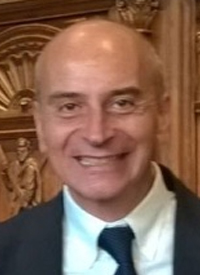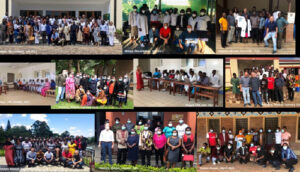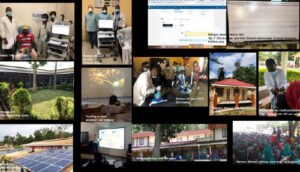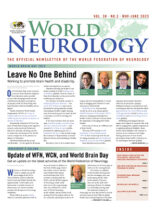Update on IGAP and DREAM work treating epilepsy in sub-Saharan Africa.
By Massimo Leone

Massimo Leone
The Intersectoral Global Action Plan (IGAP) on epilepsy and other neurologic disorders is the WHO’s neurology revolution calling neurologists and other stakeholders to become partners in order to contribute to improving access to care to people living with epilepsy (PLWE) and other neurologic disorders, particularly in geographic areas with poor access to care as sub-Saharan Africa (SSA).
In the last 20 years, SSA population has doubled, and now PLWE exceeds 20 million. More than 75% have no access to treatment. There is about one neurologist for every 2 millions inhabitants so the vast majority of PLWE are managed at primary health care facilities by non-physician clinicians (NPC) whose education on the disease is insufficient. Lack of essential medicines, electricity supply interruptions, and malfunctioning sphygmomanometers are not so rare.
An epilepsy program in SSA was initiated as a partnership between the Disease Relief Through Excellent and Advanced Means (DREAM) program, the Italian Society of Neurology, the C. Besta Neurologic Institute IRCCS Milan, the Global Health Telemedicine (GHT), and the Mariani Foundation.
DREAM is a primary care program started in 2002 to prevent and treat HIV/AIDS in SSA now active in 10 nations with 50 health centers, 28 laboratories including molecular biology, more than 500,000 HIV+ patients under regular follow-up, more than 130,000 children free-from-HIV born from HIV+ mothers, more than 120 teaching courses for thousands of African health workers, and high patient retention with 1-3% lost to follow-up/year. Community health workers — activists — from the civil society play a key role. The program is part of the local public health system and has become a reliable platform to deliver and integrate care for chronic conditions as arterial hypertension, diabetes, cervical and breast cancer. The DREAM program offered the Italian neurologists the background to build a service also for PLWE.

Participants of teaching and training courses in Malawi, Central African Republic, and Mozambique.
The partnership started in 2020 in Malawi and Central African Republic, and recently was added in Mozambique. So far, 14 in-person teaching and training courses on epilepsy and other neurologic diseases (stroke and headache) have been delivered to 137 health care workers, each followed by periods of shared work on the ground (training on the job). A simplified questionnaire on basic neurological knowledge confirmed a post-course improvement. Two video-EEGs have been installed, and a third one will arrive soon. More than 500 EEG recordings have been sent to epilepsy specialists in Italy through the GHT telemedicine platform. In two years, local clinicians sent Italian neurologists more than 1,600 teleconsultation requests, mainly epilepsy. Neurologists can interact with other specialists of the GHT platform in case of complex patients, such as suffering from both epilepsy and HIV, post-stroke epilepsy and heart disease, etc. More than 1,350 PLWE are now receiving treatment and care at the DREAM centers.
At the end of a recent teaching course, an attendee stated, “We have learned a lot, but we are neither neurologists nor do we have the possibility of dealing with neurologists/epileptologists. It will be hard to go far alone.” Translated, this means IGAP requires more shared work between local NPC and neurologists, with a long-term perspective.

Video.EEG in Central African Republic and Malawi; teaching and training courses; tele-EEG; dedicated buildings to epilepsy care; integrating epilepsy with other health needs; awareness campaigns; solar panel (eco-sustainability).
Shortage of neurologists in SSA is expected to last for several decades, making education and training of NPC a priority in the fight against epilepsy. This requires a long-term approach, key also to develop effective teleneurology. Integrating epilepsy care with other diseases, such as HIV, TB, hypertension, and malaria, is another challenge for neurologists involved in IGAP. Enhanced cooperation between neurologists and primary health care NPCs will play an important role to make IGAP successful in SSA.
- https://www.dream-health.org/epilepsy-and-neurology/?lang=en
- https://ihs-headache.org/en/news/first-rope-ihs-meeting-held-in-malawi/
- https://www.neuro.it/web/procedure/contenuto.cfm?List=WsIdEvento,WsIdRisposta,WsRelease&c1=AGGCNGNEU&c2=105&c3=1
Dr. Massimo Leone is from The Foundation of the IRCCS C.Besta Neurologic Institute, Milan, Italy.
